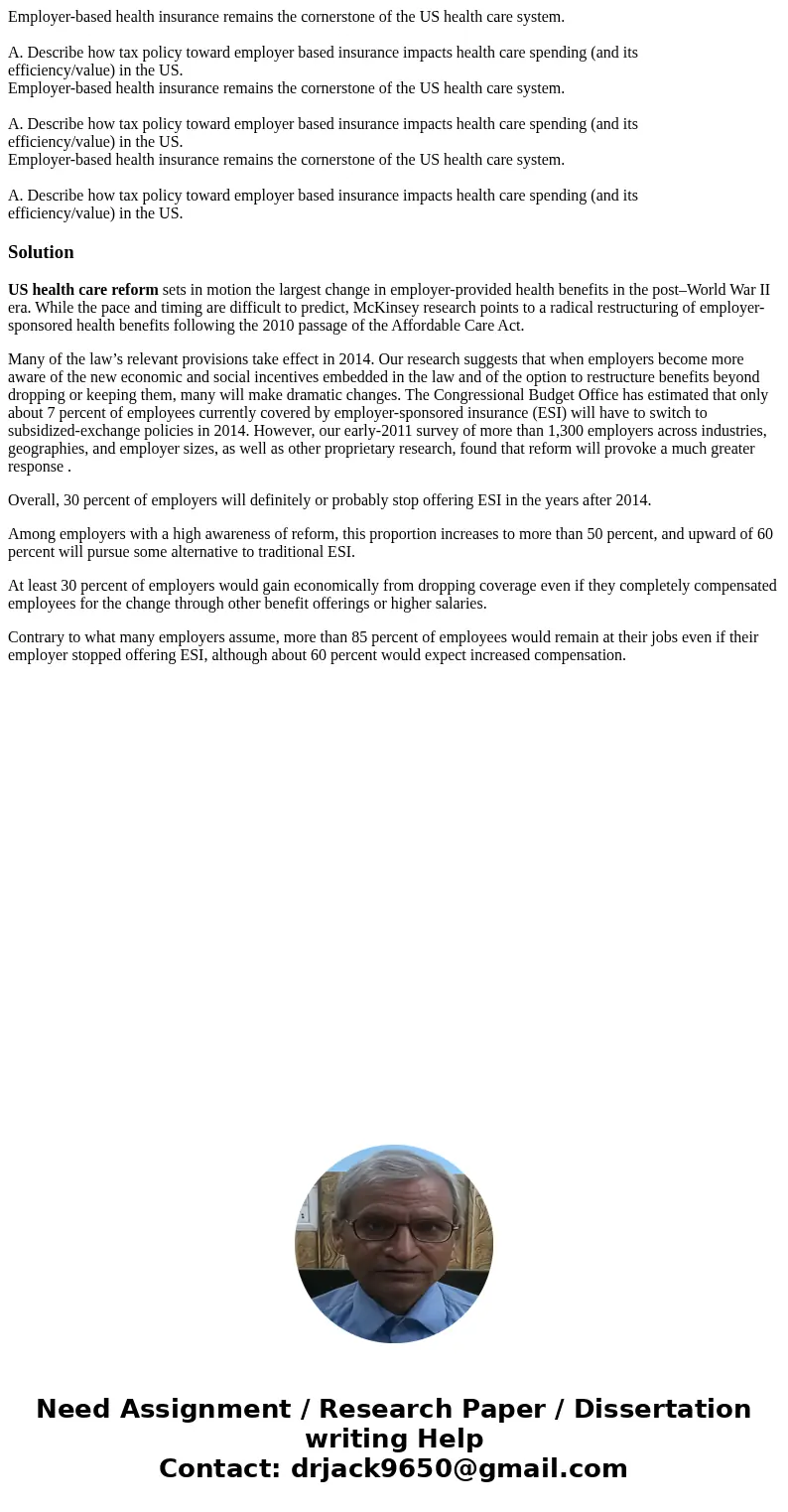Employerbased health insurance remains the cornerstone of th
Solution
US health care reform sets in motion the largest change in employer-provided health benefits in the post–World War II era. While the pace and timing are difficult to predict, McKinsey research points to a radical restructuring of employer-sponsored health benefits following the 2010 passage of the Affordable Care Act.
Many of the law’s relevant provisions take effect in 2014. Our research suggests that when employers become more aware of the new economic and social incentives embedded in the law and of the option to restructure benefits beyond dropping or keeping them, many will make dramatic changes. The Congressional Budget Office has estimated that only about 7 percent of employees currently covered by employer-sponsored insurance (ESI) will have to switch to subsidized-exchange policies in 2014. However, our early-2011 survey of more than 1,300 employers across industries, geographies, and employer sizes, as well as other proprietary research, found that reform will provoke a much greater response .
Overall, 30 percent of employers will definitely or probably stop offering ESI in the years after 2014.
Among employers with a high awareness of reform, this proportion increases to more than 50 percent, and upward of 60 percent will pursue some alternative to traditional ESI.
At least 30 percent of employers would gain economically from dropping coverage even if they completely compensated employees for the change through other benefit offerings or higher salaries.
Contrary to what many employers assume, more than 85 percent of employees would remain at their jobs even if their employer stopped offering ESI, although about 60 percent would expect increased compensation.

 Homework Sourse
Homework Sourse